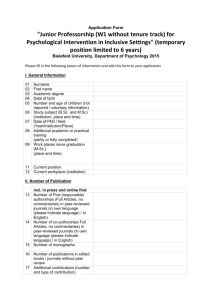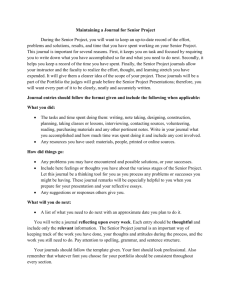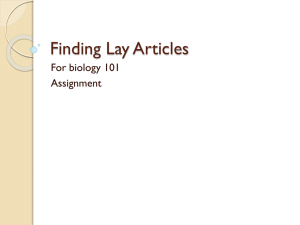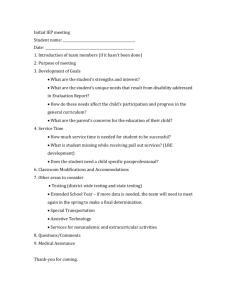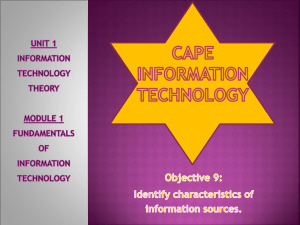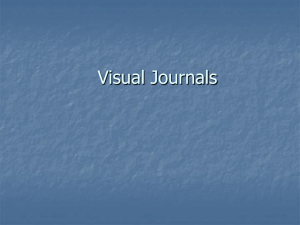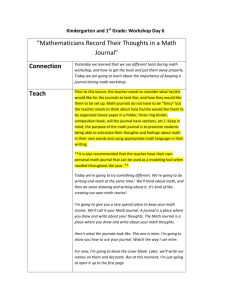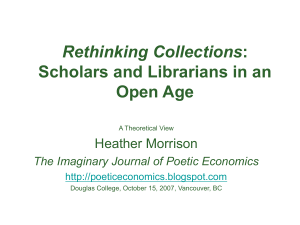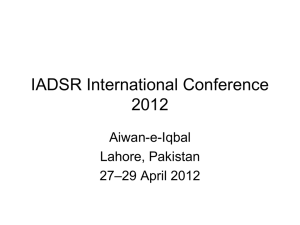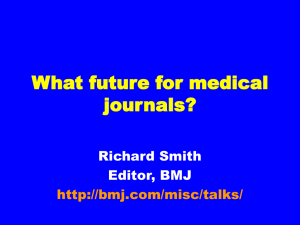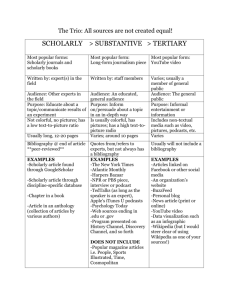MS Word - Rosedale Bible College
advertisement
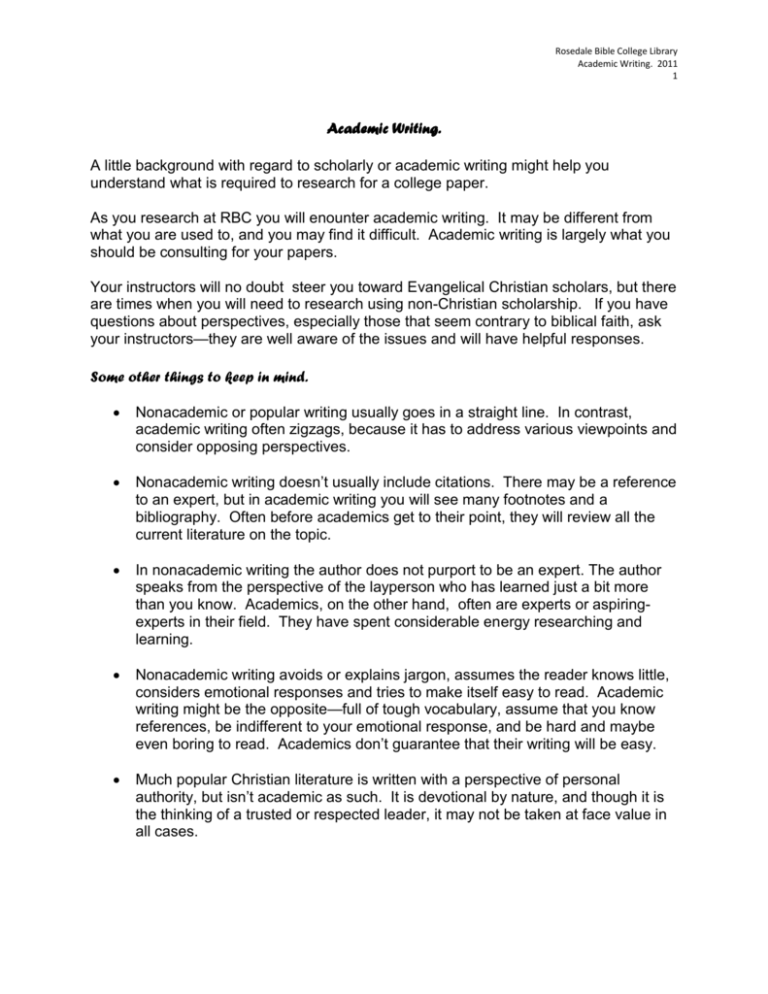
Rosedale Bible College Library Academic Writing. 2011 1 Academic Writing. A little background with regard to scholarly or academic writing might help you understand what is required to research for a college paper. As you research at RBC you will enounter academic writing. It may be different from what you are used to, and you may find it difficult. Academic writing is largely what you should be consulting for your papers. Your instructors will no doubt steer you toward Evangelical Christian scholars, but there are times when you will need to research using non-Christian scholarship. If you have questions about perspectives, especially those that seem contrary to biblical faith, ask your instructors—they are well aware of the issues and will have helpful responses. Some other things to keep in mind. Nonacademic or popular writing usually goes in a straight line. In contrast, academic writing often zigzags, because it has to address various viewpoints and consider opposing perspectives. Nonacademic writing doesn’t usually include citations. There may be a reference to an expert, but in academic writing you will see many footnotes and a bibliography. Often before academics get to their point, they will review all the current literature on the topic. In nonacademic writing the author does not purport to be an expert. The author speaks from the perspective of the layperson who has learned just a bit more than you know. Academics, on the other hand, often are experts or aspiringexperts in their field. They have spent considerable energy researching and learning. Nonacademic writing avoids or explains jargon, assumes the reader knows little, considers emotional responses and tries to make itself easy to read. Academic writing might be the opposite—full of tough vocabulary, assume that you know references, be indifferent to your emotional response, and be hard and maybe even boring to read. Academics don’t guarantee that their writing will be easy. Much popular Christian literature is written with a perspective of personal authority, but isn’t academic as such. It is devotional by nature, and though it is the thinking of a trusted or respected leader, it may not be taken at face value in all cases. Rosedale Bible College Library Academic Writing. 2011 2 What is peer review? Peer review is at the heart of scholarly communication. It simply means that others with authority have reviewed the work and decided it should be given a voice (even if they don’t agree with it). Peer review makes things easier for researchers—if an article appears in an important peer-reviewed journal, then it is deemed worthy of a researcher’s attention. About Journals Most journal content is not available for free on the Web, but you may find an article at an author’s personal site, in reprints, or databases. An article from a peer-reviewed journal is a good find when you are doing academic research. In days gone by there were relatively few journals, and each academic discipline had just one or a few journals that all the researchers in the field consulted. Things have changed. Sometimes the new situation is referred to as a crisis. Journals have proliferated, and the Web has opened up new possibilities. There are still, of course, very important journals in different academic fields. RBC subscribes to several of these, but the range and variety is much greater. Good things have come out of the proliferation of sources. More voices can be heard, and no single establishment controls so much of the flow of information. Open Access Journals are an especially welcome development for a small library like RBC’s which can’t afford many journal subscriptions. Many scholars now publish, sometimes only because they have to, in free open access databases and electronic repositories at their institution. The Book is Not Dead A balanced use of sources might include books of several types: Monographs (books with a single author); reference books (books that are consulted for specific content—not usually read in their entirety); anthologies (books that are compiled of other sources); books with more than one author. It doesn’t matter at all if a book is found in print or in another format. What matters is the quality of the writing. For research you need to find books that approach topics academically and give evidence of the features listed above.
